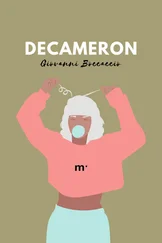“What my husband means to say,” I broke in, “is that we have not formally adopted these children, but they are ours in every other possible respect. I mean during the summer.”
“Natalie,” said Gabby, without making any attempt to soften her delivery, “you’re making no sense. Where did these two black children come from?”
Lisha traded a look with Clint and me that said she wanted to be the one to answer. “We come from South Bend, Indiana,” she said without hesitation. “My brother and I live in an orphanage there.”
“You mean when you’re not living with my brother and sister-in-law?” asked Gabby.
“That’s right,” I said. “So tell me about that big fluffy dog out in the backyard, Gabby. He looks like Tramp, doesn’t he, kids?”
R.J. and Lisha agreed that the English sheepdog in the backyard, who was pressing his furry nose against the window and wagging his tail, looked very much like Tramp from the TV sitcom My Three Sons . And they wanted to play with him.
“Can R.J. and Lisha go out and play with the dog?” I asked Gabby.
“Of course. He’s very friendly. But don’t leave the backyard.” Almost as an afterthought she added, “It’s getting dark.” As the children were going out, Gabby explained that Flagstaff gets very dark at night because outdoor lighting is kept very low to accommodate night-sky viewing from the city’s two nationally renowned observatories.
A moment later, Clint said, “Natalie and I tried to have children of our own for years. When we finally gave up, we made other arrangements.”
“Isn’t the normal course to formally adopt? Why not these children, for example?”
“Oh, Heavens, no!” exclaimed Gertrude.
Clint looked to me to answer. “There are reasons that we’ve chosen not to adopt.” I watched through the window as R.J. and Lisha fell instantly in love with the dog, whose name, we soon learned, was Dawser.
“What reasons?” persisted Gabby. “You’re being awfully mysterious. Why do you come into this house and act so mysterious?”
“I’m sorry,” was all that Clint said, his head bowed. I noted that his Keds-clad right foot was nervously pawing the deep shag carpet.
“Well, at any rate,” Gabby went on, “I don’t think it’s a healthy game to play with children — taking them three months out of the year and pretending to be their parents and then putting them right back into the orphanage to spend the rest of the year.” The topic had finally been put to bed with this pronouncement. “It’s too late to go out. I’ll start dinner. You said you’d be here by six-thirty and it’s already past eight.”
Gabby got up and left the room. “I’ll give her a hand in the kitchen,” I said to Clint, and followed. Later that night, Clint related to me the private exchange that then took place between him and Gertrude.
There was no prelude: “I don’t want them staying in this house.”
“Them. The children, you mean?”
“Yes. The nigger children. I don’t want them sleeping in my house.”
“When did you get to be this way?”
“What way? You didn’t tell me that you were bringing nigger children with you — the spawn of some heroin whore in the ghetto. Do you know who the father is?”
“Which father? R.J.’s was killed in Vietnam. And I don’t want you using that word again.”
“I don’t want them here, Clint. This is my house.”
Clint didn’t respond to what my sister-in-law had said — at least not right away. These were words that he’d never heard her say before — words that stabbed him, words that diminished her in his eyes. And the relationship between Clint and his half-sisters had been troubled for a long time anyway. He’d given them money — a lot of money — after his father died, to make up for the fact that Overell Dinkman had left his stepdaughters out in the cold. There hadn’t been even a whisper of a thank-you. Clint faulted himself for not doing a better job of maintaining communication, but then again, this was a two-way street — one avoided by both parties in equal measure.
Finally, after a long period of silence, Clint said, “I have one favor to ask of you. That you let me keep the trailer here until the morning. I’ll take Natalie and the kids to a motel tonight.”
“If that’s what you want, Clint,” said Gertrude. “But you could just as easily put the children in the trailer and you and Natalie can take the guest room. The bed is very comfortable. It has a new mattress.”
“We will eat with you. I’m sure that Gabby and Natalie are already well into preparations for the meal by now, but come tomorrow morning we’ll be on our way. What you’ve offered — to state the obvious — isn’t acceptable.”
“If that’s what you want,” Gertrude repeated. “I must say, though, that even if there isn’t something, I believe, very much the matter with two white adults gallivanting all over the place with a couple of ni — with a couple of Negro children — it’s still very odd, this thing you’re doing. Playing house. Is that what it’s called? It’s a children’s game that has no place being played by adults.”
“It makes Natalie happy.”
“Pretending to be a mother.”
“ Being a mother. And she’s a very good one. And I happen to think that I’m a good father. Sometimes life deals you certain cards, Gertrude. But you don’t have to take them. You’re allowed to discard them for something better.”
“Are the two of you — are you molesting those children?”
We didn’t stay for dinner.
The kids loved Dawser. They didn’t understand why they couldn’t stay and play with him.
I hustled them into the car while Clint connected the rig. He didn’t like driving around with the trailer at night. Even with our expertly devised pilot/co-pilot navigation system, it wasn’t an easy thing changing lanes after the sun had gone down with that freight train behind us, and especially in a city that didn’t like to light up its streets at night.
We reached a trailer park just east of town at about 9:30. I boiled eggs and we all had egg and olive sandwiches. After tucking the kids into bed, Clint and I sat outside in lawn chairs and talked in low voices late into the night. Was it wrong, what we were doing? Was there something wrong with us ? Gabby had been right about it being a game, but it was a game that we all bought into, that all four of us enjoyed, and who got hurt? For ten weeks out of the year — weeks that Clint and I looked forward to with enthusiastic, childlike anticipation — we played that game to the hilt. And for those two and a half months the children had something they hadn’t known for a long time, if ever: real, live, loving and giving parents.
In late November, Clint and I made it official: next summer we’d be going to the Payette National Forest and the spectacularly scenic Salmon River in Idaho. And we’d be trading in our Avion Imperial for an Airstream. I’d always wanted an Airstream. I wasn’t sure, though, if R.J. and Lisha would be strong enough to make the trip. As it turned out, R.J. died in February. Lisha’s own battle with childhood leukemia ended in April.
We will have a new R.J. and Lisha when we set out in June — two new terminally ill orphans whom fate has dealt terrible blows.
We keep photo albums of all of our trips, of all the children we have parented, and loved, and lost. The albums keep me going until the arrival of blessed summer.
1970 SKIRTING THE ISSUE IN WEST VIRGINIA
Starkman’s a good listener. Hell, I tell him things I don’t even tell myself in the bathroom mirror. He has that father-confessor quality about him that opens me up just like a zippered garment bag. Sorry. I’ve got clothes transport on the brain. I work on the fashion floor at the Diamond. I’m a buyer in Misses Dresses, Daytime Dresses, and Furs. But on any given day you’ll find me all over that floor. And this week, with our big Samsonite sale, I’m like the gorilla in that TV ad, pounding all that hard-shell luggage and all but jumping up and down on it. I swear to the ever-lovin’ God of Retail that there are people who are actually buying those suitcases because of my antics, coupled with that saturation ad campaign on TV. And here’s the kicker, if you don’t know it already: those commercials aren’t even for Samsonite! They’re for “Strong Enough to Stand On” American Tourister! You’ve heard of collateral damage, right? This, brother, is what I call a collateral assist!
Читать дальше












